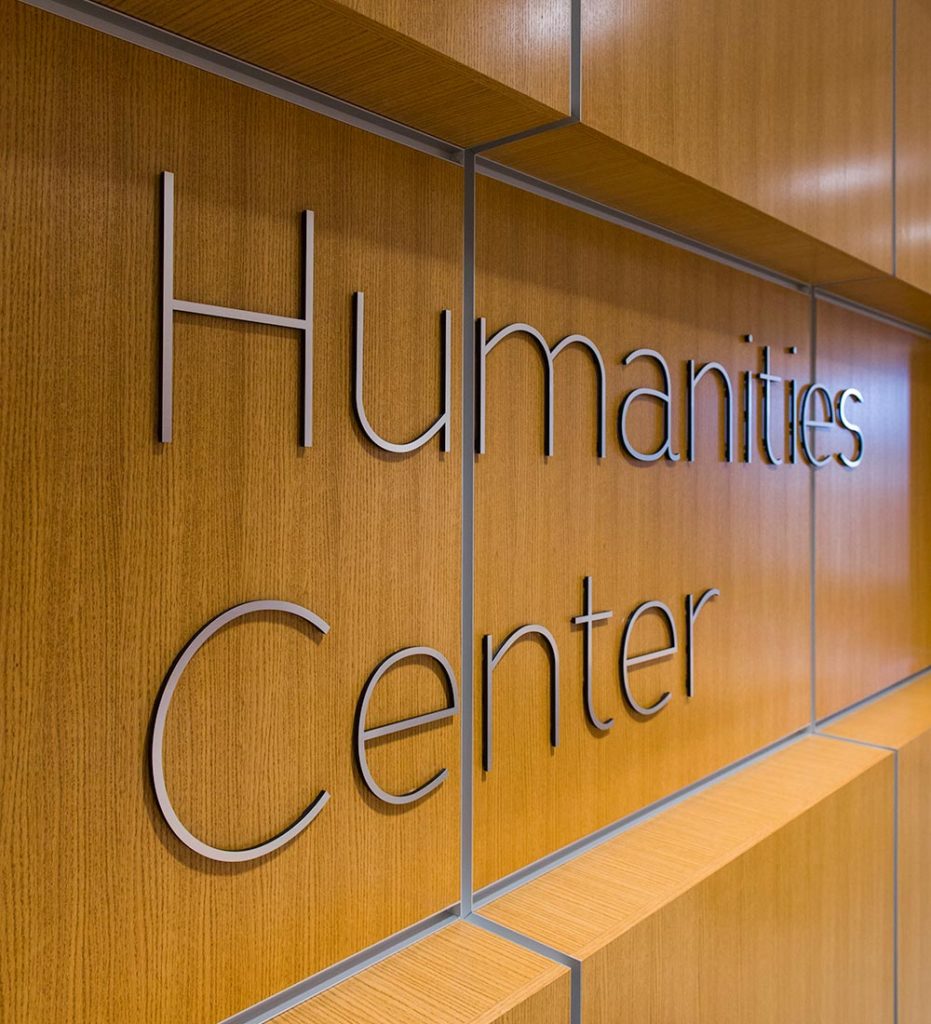Research & Innovation Grants (RIG)
Research & Innovation Grants (RIG) provide research expenses of $3,500 for undergraduate students from across all disciplines (Humanities, Social Sciences, Natural & Applied Sciences) working with a faculty sponsor. Only students applying to the College are eligible for these grants. Grants are awarded as part of the admission process and students cannot apply for them directly. Eligible sponsors are faculty members who hold any type of appointment (including clinical, emeritus, adjunct, research associate, instructor, etc.) in any part of the University.
The benefits of RIG
These grants can help you get involved in experiential activities that:
- Stimulate your mind
- Broaden your perspectives
- Expand your intellectual and social networking
- Strengthen your connections to the University community and to the research and creative communities throughout the world

RIG and the Humanities
The University received a $1 million grant from the Mellon Foundation for research in the humanities. Part of this grant is being used to intensify the opportunities for the RIG specifically for students interested in pursuing research within the humanities and social sciences.
This incredible opportunity matches students with faculty mentors, helps them identify their interests, teaches them how to propose and design an independent research project, and then finances that project to make it a reality. Programs like this make URochester a powerful place where even first-year students can produce cutting-edge research.
Finding a faculty sponsor
All students who are awarded the RIG begin with their own research idea. In order to disburse the funding and begin their research, students work with a faculty sponsor. Many students will change or modify their original research proposal after close consultation with their sponsor.
You should not contact faculty directly until you are on campus and ready to begin your application for grant disbursement.
Step 1: Explore the College website
Before submitting your preliminary request for RIG funding dispersment, you should look for faculty members you might like to collaborate with when you get to URochester. You should not contact them directly in the preliminary phase. On your preliminary application, list names and current research projects of faculty you may like to work with to support your proposed work.
Research opportunities by department
Step 2: Make a list of possible faculty sponsors
If your preliminary application is accepted and you receive a grant, you should begin to narrow and refine your search for a faculty sponsor. A good starting place is faculty members you may know (for example, instructors you’ve had for a class). You could also ask the teaching assistants (TAs) you’ve had to recommend possible sponsors. If your academic advisor is a faculty member, you could put her or him on your list, or just ask your academic advisor for suggestions.
Finally, ask your friends about professors they may know, either from a class or from some out-of-class experience, such as undergraduate research. Online, you can begin by searching the ILLIAD faculty interests database, the professors’ personal web pages (usually linked from the departmental web pages), and library online catalogs and databases. Your goal is to identify commonalities in your intellectual interests and to identify topics to discuss during your initial meeting.
Step 3: Send emails
Make sure you know something about the research interests of each possible sponsor on your list. You can use departmental web pages to discover details about a sponsor’s research. Your email should:
- Indicate that you were awarded a RIG at the time of your admission to the University, with a brief description of the grant requirements
- Describe your interest in the faculty member’s research
- Provide a brief description of who you are; for example, your major, your class year in the College, and your strong points for doing research
- Ask for a specific time and place to meet to discuss research possibilities
Step 4: Meet your potential sponsor(s)
Plan an agenda of questions you would like answered before you leave the meeting.
Begin by introducing yourself and your desire to work with them as a sponsor. Make sure you know as much as possible about their work when you start the conversation.
It is possible that the professor will be unable at the time to take on another student. Or you may decide that the professor is not the right fit for you. You should then ask about faculty members with similar areas of interest whom you might approach. Be sure to send a thank-you note or email.
Step 5: Begin working with your faculty sponsor
Your relationship with your faculty sponsor may vary depending on how you will use your grant. Once the grant disbursement begins, you should meet regularly with your sponsor to discuss the progress of your work. Your sponsor will need to sign off on the successful completion of your research experience.
Mesrob Mashtots Innovation Grant
Beyond the normal RIG awards, there are several other grants given each year to students with unique potential for research and innovation. The most prestigious of these is the Mesrob Mashtots Innovation Grant. Initially awarded in 2010, this $5,000 grant, named after the Armenian linguist, theologian, and statesman, has been granted to students with a strong interest in the social sciences and humanities.
Undergraduate students who have expressed interest in the RIG program or have exhibited exceptional aptitude for the social sciences and humanities are invited to apply for the grant during their first year. This award is sponsored by University Trustee Emeritus Ani Gabrellian ’84 and her husband Mark Gabrellian ’79, distinguished alumni and generous supporters of the arts and humanities at the University of Rochester.
Through this award, students are able to expand their opportunities for research, innovation, and exploration both on campus and around the globe. The Mesrob Mashtots Innovation Grant can be used in the same way as a normal research grant to explore and fund research expenses, travel abroad, participate in unpaid internships, and cover conference costs among other projects to make the most of opportunities for practical experience and innovation.

Photo credit: Dillon Bowman, Class of 2015, a Mesrob Mashtots Innovation Grant recipient who used his award to travel abroad to Egypt and the Middle East to study Arabic.
Additional endowed grants
Currently, the University of Rochester offers two additional endowed RIG opportunities. Each of the following grants is awarded to a student who shows an impressive aptitude in the sciences:
- Brian E. Anderson ’06 Innovation Grant
- Sean P. Anderson ’11 (PhD) Innovation Grant
